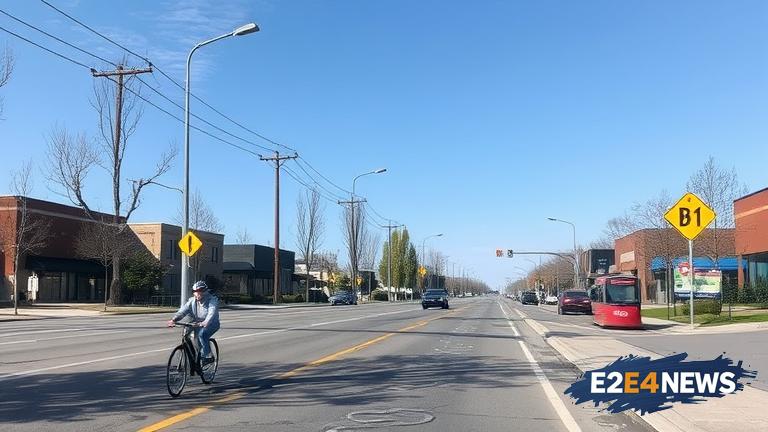The city of Edmonton has been embroiled in a heated debate over the implementation of bike lanes, with many residents and businesses expressing concerns over the impact on traffic and local commerce. Despite these concerns, city officials have been accused of turning a deaf ear to the feedback, pushing forward with their plans without adequately addressing the issues raised. The debate has been ongoing for several years, with the city investing millions of dollars in the development of a network of bike lanes. However, many have questioned the wisdom of this investment, citing the lack of cyclists using the lanes and the negative impact on traffic flow. Some have also raised concerns over the safety of the bike lanes, citing the lack of separation from vehicular traffic and the potential for accidents. Despite these concerns, city officials have remained committed to their vision of a bike-friendly city, with the mayor stating that the bike lanes are an essential part of the city’s transportation infrastructure. However, many have argued that the city’s approach has been heavy-handed, with little consideration given to the needs and concerns of residents and businesses. The city’s bike lane strategy has been criticized for being overly ambitious, with some arguing that it is unrealistic to expect a significant shift away from vehicular transportation in a city as sprawling as Edmonton. Others have pointed out that the city’s bike lanes are often poorly maintained, with potholes and debris making them hazardous for cyclists. The debate has also raised questions over the city’s priorities, with some arguing that the money spent on bike lanes could be better spent on other infrastructure projects, such as road repairs or public transportation. Despite the controversy, the city has continued to push forward with its bike lane plans, with several new lanes scheduled to be built in the coming years. The city has also implemented a number of initiatives aimed at encouraging cycling, including bike-share programs and cycling education classes. However, many have argued that these initiatives are not enough to address the underlying concerns over the bike lanes, and that a more comprehensive approach is needed to address the issues raised. The debate over bike lanes in Edmonton is likely to continue, with many residents and businesses remaining skeptical over the city’s plans. As the city moves forward with its bike lane strategy, it will be important for officials to listen to the concerns of residents and businesses, and to work towards finding solutions that balance the needs of all road users. The city’s approach to the bike lane debate has been criticized for being too focused on the needs of cyclists, with little consideration given to the needs of other road users. However, others have argued that the city’s approach is necessary to create a more sustainable and environmentally-friendly transportation system. The debate has also raised questions over the role of city officials in shaping the city’s transportation infrastructure, with some arguing that they have overstepped their authority in pushing forward with the bike lane plans. As the city continues to grapple with the issues surrounding bike lanes, it will be important for officials to be more responsive to the concerns of residents and businesses, and to work towards finding solutions that benefit all members of the community. The city’s bike lane strategy has been the subject of much controversy, with many arguing that it is a waste of taxpayer dollars. However, others have argued that the benefits of the bike lanes, including improved air quality and increased physical activity, outweigh the costs. The debate over bike lanes in Edmonton is complex and multifaceted, with many different perspectives and opinions on the issue. As the city moves forward with its plans, it will be important to consider all of these perspectives, and to work towards finding solutions that benefit the entire community. The city’s approach to the bike lane debate has been criticized for being too divisive, with some arguing that it has pitted cyclists against drivers and pedestrians. However, others have argued that the debate has been necessary to raise awareness of the issues surrounding transportation in the city, and to encourage a more nuanced discussion of the city’s transportation infrastructure. The city’s bike lane strategy has been shaped by a number of factors, including the city’s transportation master plan and the provincial government’s climate change strategy. However, many have argued that the city’s approach has been too focused on meeting provincial targets, with little consideration given to the needs and concerns of local residents and businesses. As the city continues to implement its bike lane plans, it will be important for officials to be more responsive to the concerns of residents and businesses, and to work towards finding solutions that benefit all members of the community. The debate over bike lanes in Edmonton is likely to continue, with many residents and businesses remaining skeptical over the city’s plans. However, by listening to the concerns of all road users and working towards finding solutions that balance the needs of all members of the community, the city can create a more sustainable and environmentally-friendly transportation system that benefits everyone.
